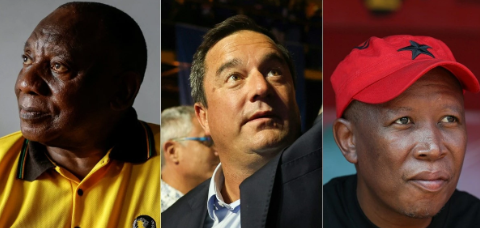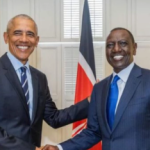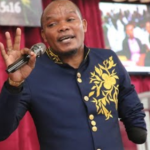South Africa’s newly-elected parliament convenes Friday, poised to re-elect President Cyril Ramaphosa, who is set to lead an unprecedented coalition government following his ruling ANC’s negotiation of a coalition deal.
Following his party’s loss of its absolute majority in last month’s general election, Ramaphosa, leader of the African National Congress, advocated for a government of national unity. However, this proposal was rejected by two major leftist parties.
Instead, according to ANC secretary general Fikile Mbalula, the government will “gravitate to the centre,” supported by the centre-right Democratic Alliance (DA), the Zulu nationalist Inkatha Freedom Party (IFP), and several smaller parties.
Mbalula confirmed in Cape Town that the radical leftist Economic Freedom Fighters (EFF) declined to join what he termed a unity government.
Meanwhile, Jacob Zuma’s new electoral vehicle, the uMkhonto weSizwe (MK), which is embroiled in corruption allegations, contested the May 29 election results and threatened to boycott Friday’s parliamentary session.
Mbalula stated that the ANC was engaged in discussions with MK but had not reached an agreement.
Ramaphosa is anticipated to secure victory in the secret ballot of MPs, confirming his re-election. Following this, he will be sworn in next week in Pretoria, where he is expected to unveil his new cabinet, potentially including ministers from both the ANC and the former opposition parties in the coalition.
Post-apartheid democracy
As South Africa navigates its post-apartheid democracy, political dynamics are shifting, with the African National Congress (ANC) facing a new reality of coalition talks rather than operating under the guise of a government of national unity, as observed by political analyst Dr. Hlengiwe Ndlovu of Wits University School of Governance.
For three decades following the end of apartheid, the ANC maintained an absolute majority and consistently elected its president from within its ranks.
However, recent years have seen the ANC’s support wane due to corruption scandals and economic challenges, culminating in a significant loss of seats in the May 29 election, reducing its parliamentary representation to 159 out of 400 seats.
To bolster his position, President Cyril Ramaphosa is now engaging with smaller parties, including the Democratic Alliance (DA) and the Inkatha Freedom Party (IFP), to form a coalition government.
Political analyst Susan Booysen notes that this strategy serves as insurance for Ramaphosa, particularly amid reports of potential dissent within ANC ranks.
However, the left-wing Economic Freedom Fighters (EFF), led by Julius Malema, reject joining the administration, advocating instead for their own agenda of land nationalization and opposing alliances with parties such as the DA, which they perceive as representing imperialism and racism.
In response, Malema has stated that his party would support the ANC candidate for president if offered key positions in parliament but opposes the inclusion of the DA and the Freedom Front Plus, a right-wing party advocating for an Afrikaner homeland, in any unity government.
– A millionaire businessman.
Cyril Ramaphosa, a 71-year-old former trade unionist who transitioned into a millionaire businessman, ascended to power in 2018 following the resignation of Jacob Zuma amid corruption allegations. Revered by Nelson Mandela as one of the most talented leaders of his generation, Ramaphosa played a pivotal role in the negotiations that led to the end of apartheid in the early 1990s.
Upon assuming office, Ramaphosa promised a new era for South Africa. However, critics argue that he has failed to deliver on these promises.
During his tenure, unemployment has surged to nearly record levels, contributing to the ANC’s poorest election performance in history.
The recent shift towards a centrist coalition, including support from center-right and right-wing factions, may further erode Ramaphosa’s support base, particularly within the ANC.
Despite being a progressive party of the left, the ANC has implemented various welfare and economic empowerment initiatives aimed at uplifting disadvantaged black South Africans.



